Hundreds of thousands marched in more than 300 cites across the world on Saturday in the second Women's March.
In New York, thousands crammed the streets carrying signs about the Trump administration, women's rights, reproductive rights and more.
We asked protesters how this year's march was different and why they decided to participate.
“I want to stand with my sisters, and I want to represent black feminists. In history, we've seen that black women have to either choose between the black women’s movement or the feminist movement.”
— Denee Dalencour, student and daughter of Haitian immigrants
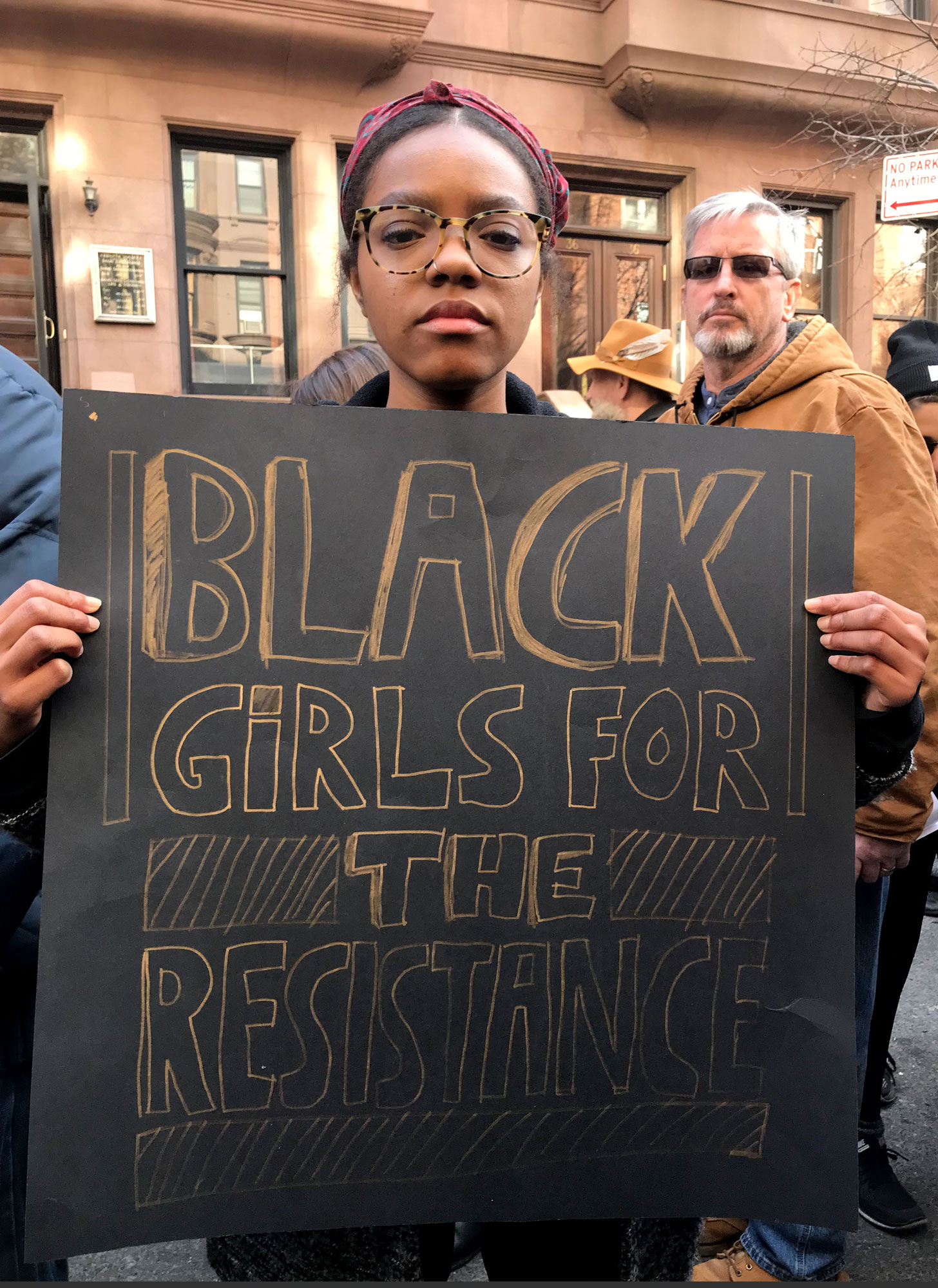
"My mother is an immigrant from Haiti. So, we were in the car and my mom doesn't watch a lot of news. But my dad was telling her [about President Trump’s recent comments, about Haitian immigrants]. And she was really upset and started crying. It's really rough when people attack who you are as a person.
"So, my entire life, she basically like let my dad walk all over her. And I saw that as a kid, and I was like, ‘That's never how I'm going to be when I get older. I need to speak up and stand up for being a woman and not let anybody walk all over me.’ That’s like the core of my activism is, what I saw growing up in my family. Your own home.
"I want to stand with my sisters, and I want to represent black feminists. I texted a bunch of my friends and they just didn't seem interested but I didn't want that to hold me back. In history, we've seen that black women have to either choose between the black women’s movement or the feminist movement. I feel like those can be converged and that intersectionality is really important. So, I'm here, even though I'm standing alone, by myself, to represent that."
"So, my entire life, she basically like let my dad walk all over her. And I saw that as a kid, and I was like, ‘That's never how I'm going to be when I get older. I need to speak up and stand up for being a woman and not let anybody walk all over me.’ That’s like the core of my activism is, what I saw growing up in my family. Your own home.
"I want to stand with my sisters, and I want to represent black feminists. I texted a bunch of my friends and they just didn't seem interested but I didn't want that to hold me back. In history, we've seen that black women have to either choose between the black women’s movement or the feminist movement. I feel like those can be converged and that intersectionality is really important. So, I'm here, even though I'm standing alone, by myself, to represent that."
“ ... at some point you feel like, 'Do I really have to do this again?' But I guess you know democracy is a very fragile institution and we really need to protect it and be out there fighting for it every day.”
— Barbara Perlov, nonprofit fundraiser, New York City

"When I was in middle school, I was protesting the Vietnam War. And that was before everybody was against the war. I walked with friends from the neighborhood and they were throwing light bulbs out of office windows that were exploding on the sidewalk around us and. But we we knew we were right.
So, you know, at some point you feel like, 'Do I really have to do this again?' But I guess you know democracy is a very fragile institution and we really need to protect it and be out there fighting for it every day."
So, you know, at some point you feel like, 'Do I really have to do this again?' But I guess you know democracy is a very fragile institution and we really need to protect it and be out there fighting for it every day."
“I think we're dismantling layers of intergenerational trauma.”
— Beth Councilman, social worker and LGBT activist
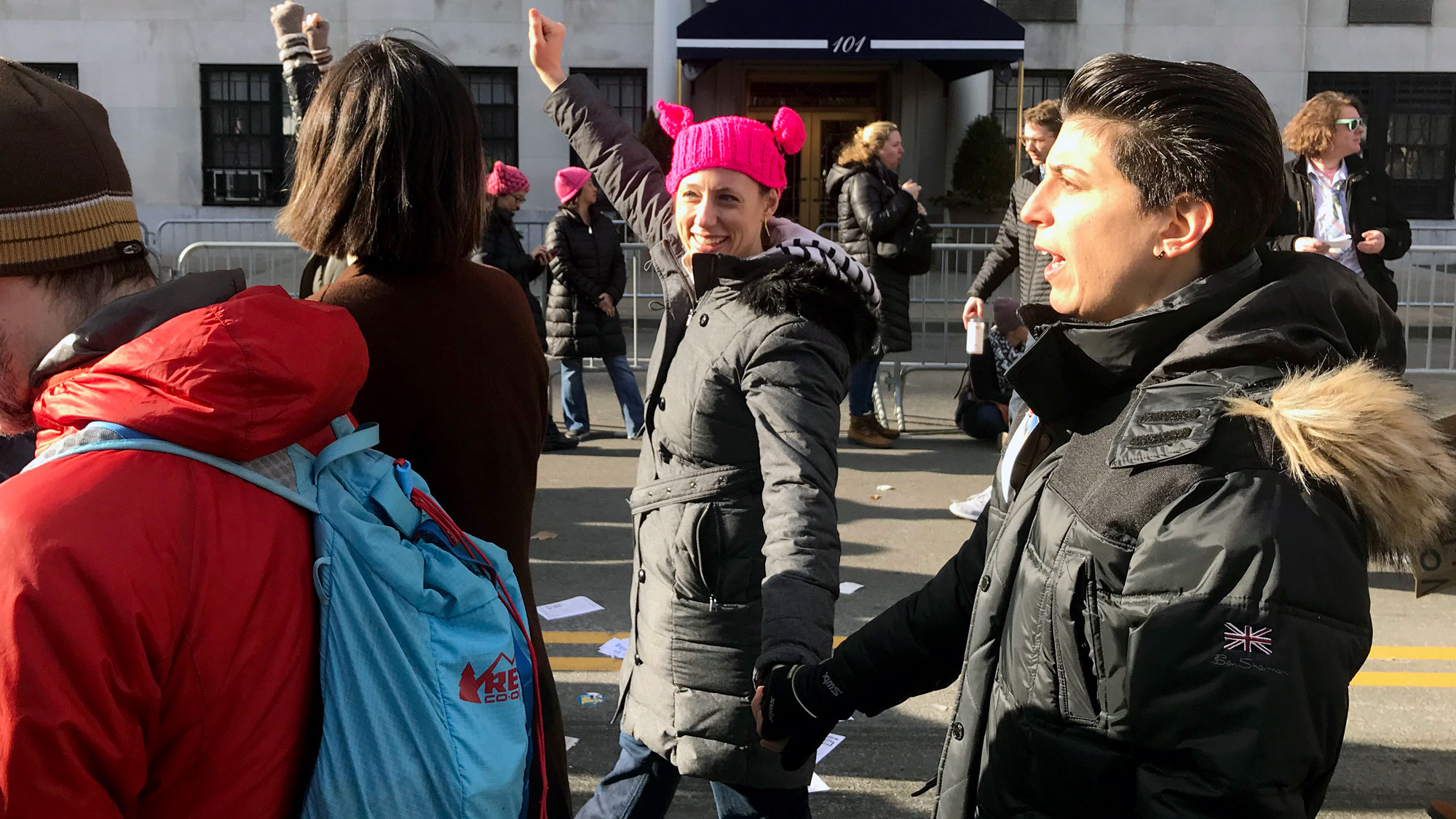
"My mom identified as a feminist. She was one of the first certified sex ed teachers in New York state. I remember the first time I came home from work and there was a senior guy ... I was a marketing intern, he had grabbed my ass when I was walking by his office. And she was like, ‘That’s just how some men are.’
"That was the work environment that I was raised in, and that’s what my mom put up with. It was sort of like this generational putting up with it, and I said, “Well you shouldn’t put up with it.” She was like, ‘Well, how are you going to change it?’ And I said, “Well, having conversations and saying no, stop, that’s not OK.” But you know, as a 21-year-old intern who wanted a recommendation at the time, I was scared. The woman I respected the most was telling me to just let it go, because it had happened to her. So I think we’re dismantling layers of intergenerational trauma.”
"That was the work environment that I was raised in, and that’s what my mom put up with. It was sort of like this generational putting up with it, and I said, “Well you shouldn’t put up with it.” She was like, ‘Well, how are you going to change it?’ And I said, “Well, having conversations and saying no, stop, that’s not OK.” But you know, as a 21-year-old intern who wanted a recommendation at the time, I was scared. The woman I respected the most was telling me to just let it go, because it had happened to her. So I think we’re dismantling layers of intergenerational trauma.”
“I want to do something but I don't know what to do or where to go.”
— Asako Aiba, mother from Yokohama, Japan
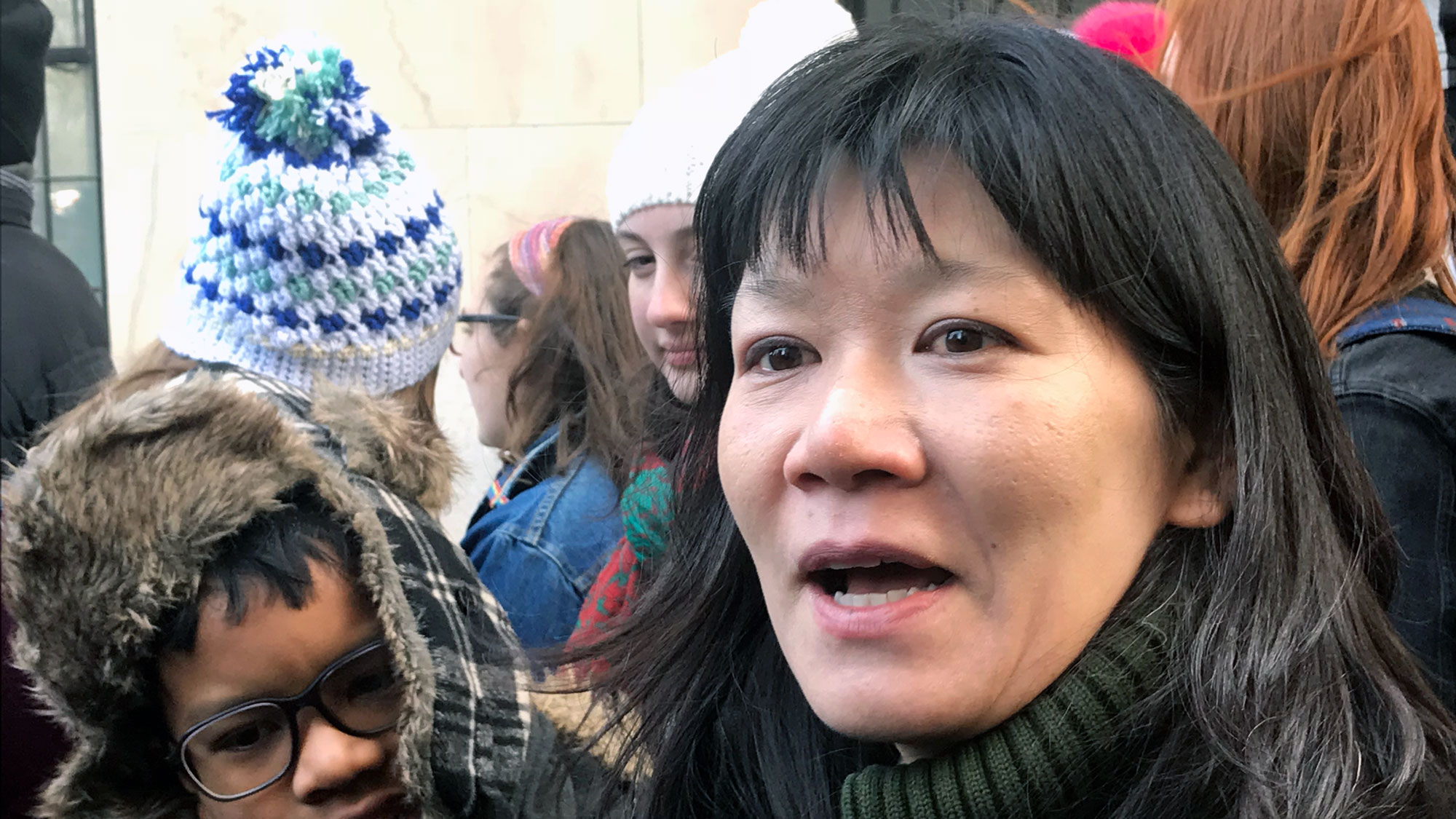
"I want to do something but I don't know what to do or where to go. So, I just came here. It's disturbing and upsetting. But I don't know how to fight against that. I don't know how to raise my voice. I don't know how to speak up."
“I think the one thing that [my mom] has given me is that, you know you have the voice, make it heard. So if you stand for something and you believe in it, then you participate.”
— Dexter Tinapay, father from the Philippines
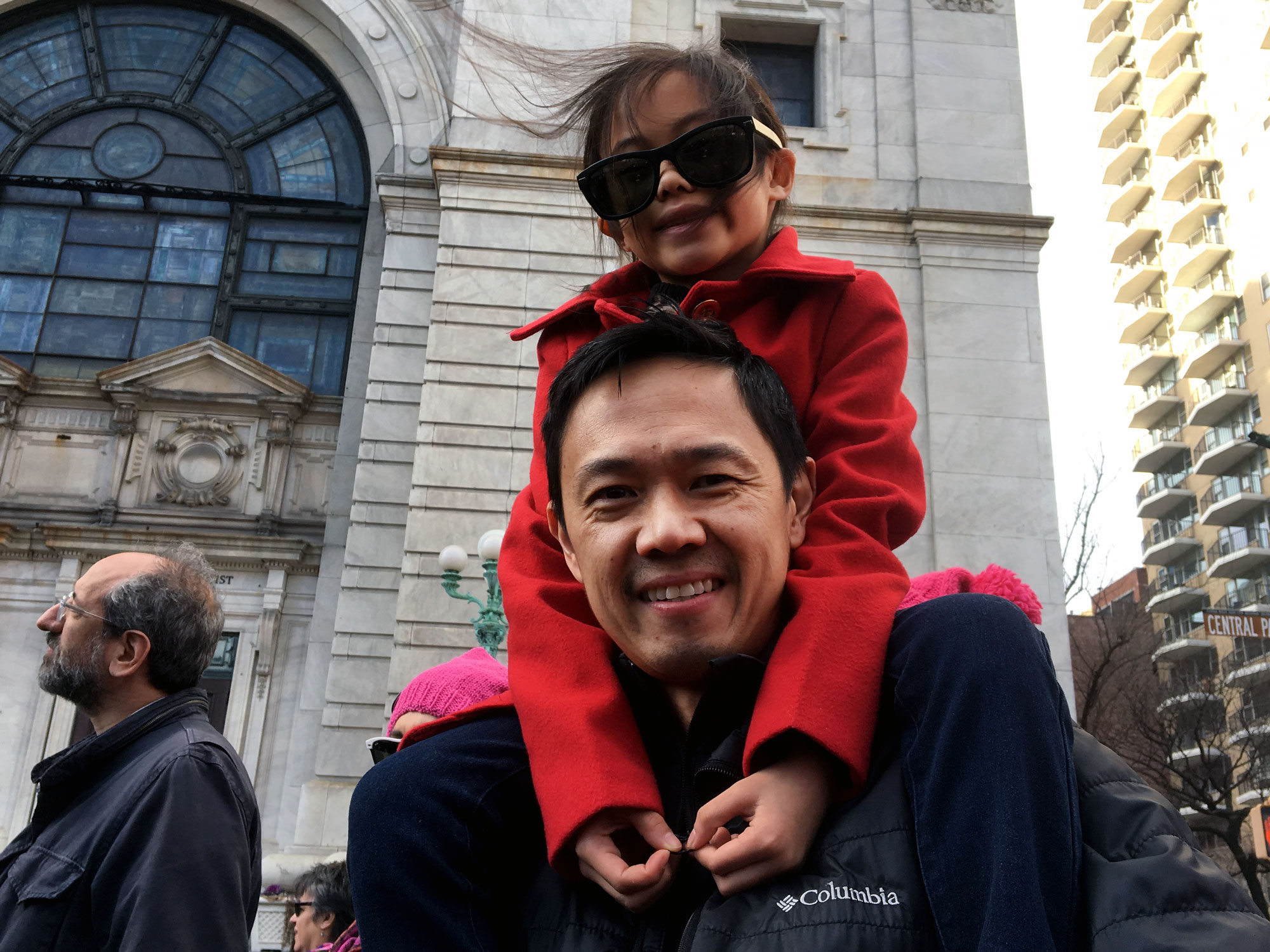
"Growing up, my parents were activists from the Philippines. Back in [my mom’s] time, you’re talking about you know, fire trucks and brigades and things like that. I’m really proud of her for standing up to that. I think the one thing that [my mom] has given me is that, you know you have the voice, make it heard. So if you stand for something and you believe in it, then you participate.
"We want the best for our daughter. You know we want her to grow up knowing that she can be anything that she wants to be and can be. You know, just pursue anything in life. She's 7. So, this morning when we where talking about the march, my emphasis was just you know, we march because we want everybody to be nice to everybody. Whether a girl or a boy or whether you are this or that. Everybody just needs to be nice and respectful to everybody. And I think that's something that she can comprehend for now."
"We want the best for our daughter. You know we want her to grow up knowing that she can be anything that she wants to be and can be. You know, just pursue anything in life. She's 7. So, this morning when we where talking about the march, my emphasis was just you know, we march because we want everybody to be nice to everybody. Whether a girl or a boy or whether you are this or that. Everybody just needs to be nice and respectful to everybody. And I think that's something that she can comprehend for now."
“I don’t want to sound doom and gloom, but we have closed our eyes to a big problem. This planet is a sick planet.”
— Xenia Freilich, biologist from Costa Rica
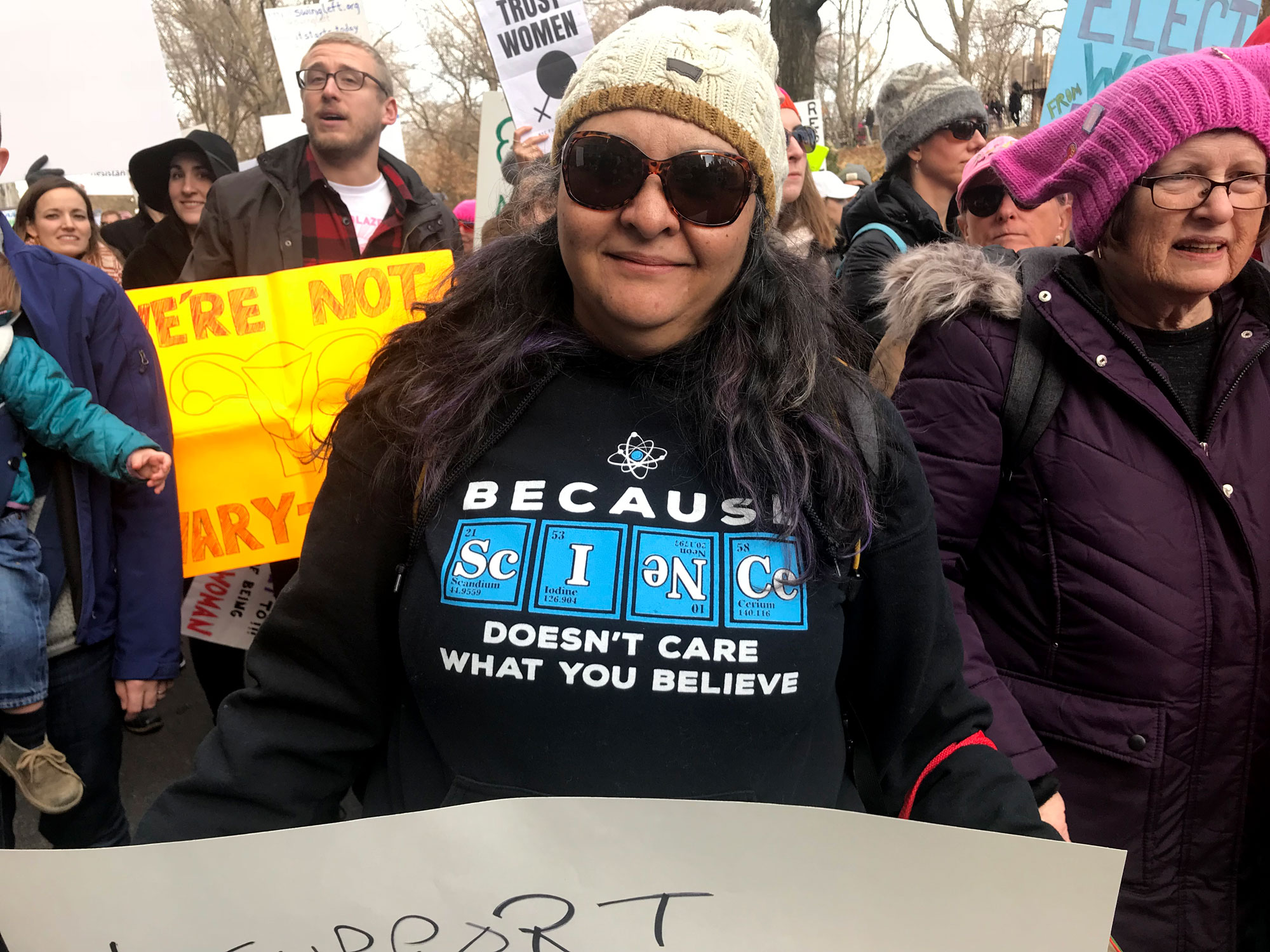
"I’m an immigrant. I’m from Costa Rica. I’m also here as a scientist. I’m a biologist, I work for the City University Of New York. I do molecular evolution. I don’t want to sound doom and gloom, but we have closed our eyes to a big problem. This planet is a sick planet. There’s no place that is pristine anymore. I also participated in the science march [last year]. I think it was very successful.
Produced by Alex Newman; edited by Anna Pratt. Reporting and images by Jasmine Garsd and Alex Newman in New York.

